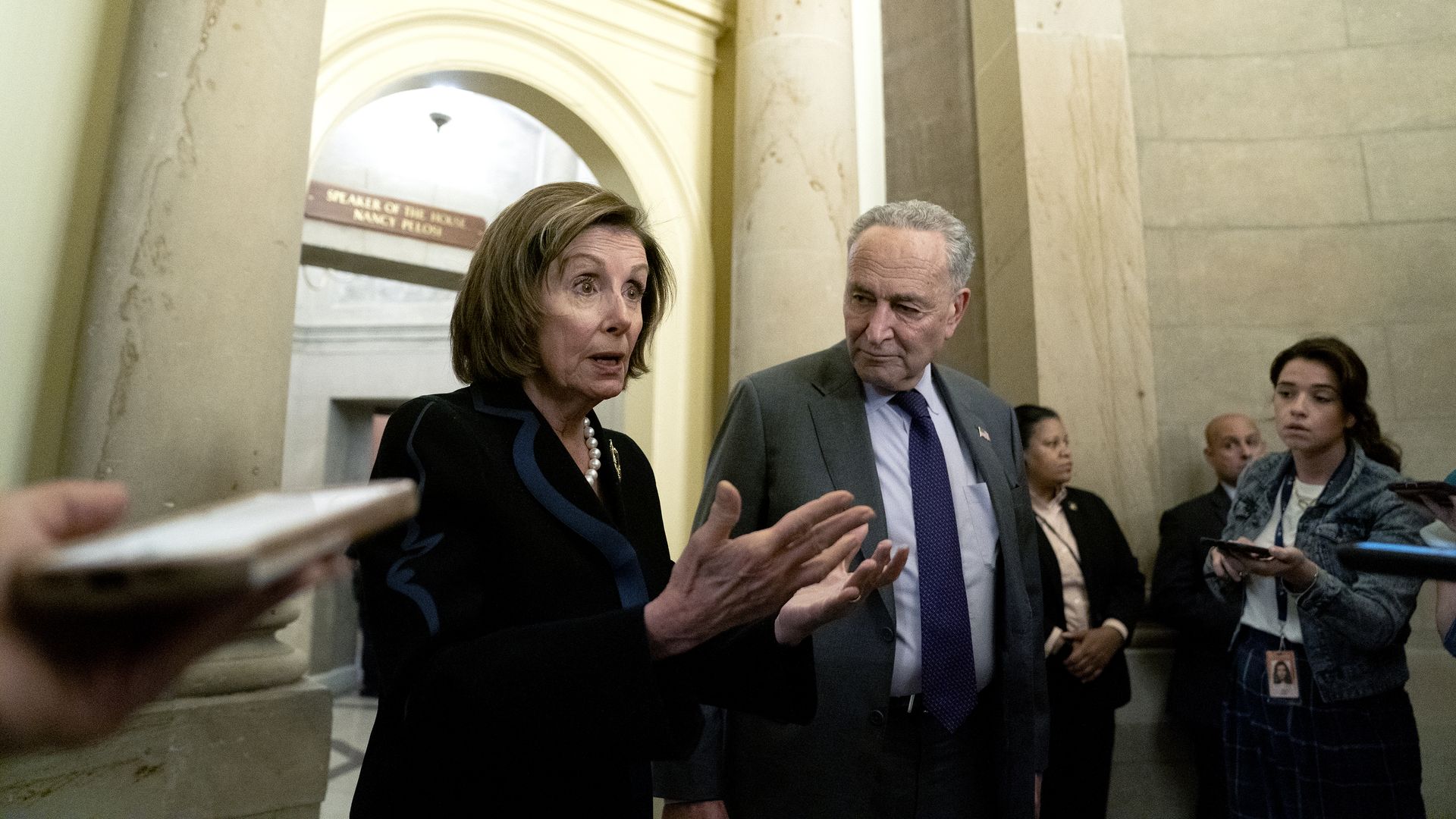Democrats propose raising debt ceiling through midterms
Add Axios as your preferred source to
see more of our stories on Google.

Speaker of the House Nancy Pelosi and Senate Majority Leader Chuck Schumer. Photo: Stefani Reynolds/Bloomberg via Getty Images
House and Senate leadership announced on Monday that they plan to attach a proposal to raise the debt ceiling through Dec. 2022 to a short-term, government funding bill. The bill must pass before the end of the month or Congress risks a shutdown.
Why it matters: Democrats are taking a huge risk by trying to force through an increase of the debt limit in its must-pass funding bill. The move is wishful thinking on behalf of Democrats who are hoping they can get at least 10 centrist Republicans to balk, as well as an effort to put Republicans on record opposing it.
- Republicans have repeatedly vowed to oppose any effort to raise the debt ceiling and Democrats need at least 10 GOP senators to vote in favor of the measure in order to get it through.
- That means the ball will likely be punted back into Democratic leadership's court, and the government is increasingly running out of time to deal with the issue.
- Congress is quickly approaching the deadline to raise the debt limit or risk defaulting on its debt for the first time in U.S. history by some point in October.
Timing: The House is expected to vote on the measure this week, then kick it to the Senate. Senate Minority Leader Mitch McConnell has pledged to oppose any such move and is adamant on forcing Democrats to deal with the debt limit on their own through the budget reconciliation process, which only requires a simple majority vote.
What they're saying: “The legislation to avoid a government shutdown will also include a suspension of the debt limit through December 2022 to once again meet our obligations and protect the full faith and credit of the United States," House Speaker Nancy Pelosi and Senate Majority Leader Chuck Schumer said in a Monday afternoon statement.
- "We believe a suspension of the debt limit through December 2022 would provide an amount of time commensurate with the debt incurred as a result of passing last winter’s bipartisan $908 billion emergency COVID relief legislation, which was authored by Republican Senators Cassidy, Romney, Portman, Collins and others – and ultimately voted for by more than 40 Republicans – including Senator McConnell – and signed into law by the previous president."
- McConnell immediately threw cold water on Democrats' plans, saying on the floor Monday afternoon: "They will not get Senate Republicans help for raising the debt limit ... We will not support legislation that raises the debt limit."
Details: The upcoming, short-term funding bill, also known as a continuing resolution, will also include additional funding for emergency disaster relief and to resettle Afghan evacuees.
Go deeper: The debt ceiling stare down
